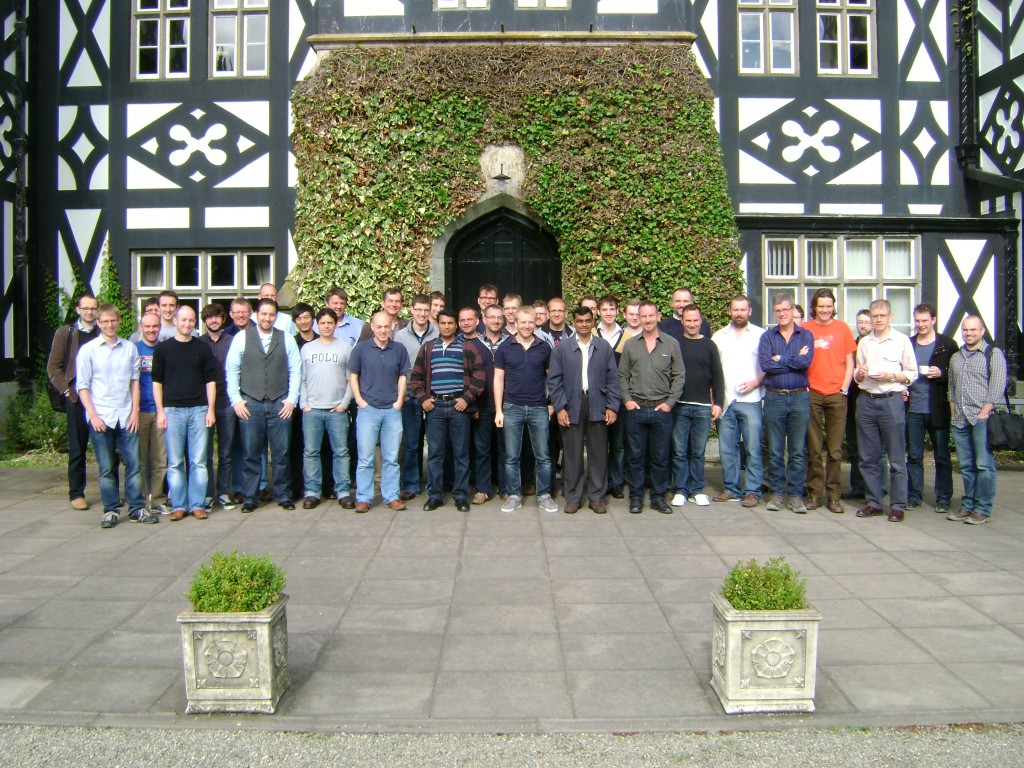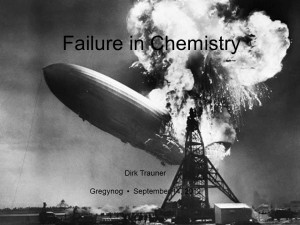 The annual Gregynog Synthesis Meeting was recently held at Gregynog Hall (Thursday 13th to Saturday 15th September), amidst the stunning beauty of mid-Wales and accompanied by fair weather. A group of 55 chemists came together to discuss recent progress in organic synthesis. As befits such a broad remit, the range of stakeholders present was pronounced with academic, industrial and scientific publishing attendees all present. As synthesis is an enabling and under-pinning scientific discipline, it was perhaps not surprising to see the range of contexts in which speakers discussed their synthesis. Catalysis, methodology and natural product chemistry were not-surprisingly representative; however, the audience was also treated to medicinal, process and supramolecular chemistries.
The annual Gregynog Synthesis Meeting was recently held at Gregynog Hall (Thursday 13th to Saturday 15th September), amidst the stunning beauty of mid-Wales and accompanied by fair weather. A group of 55 chemists came together to discuss recent progress in organic synthesis. As befits such a broad remit, the range of stakeholders present was pronounced with academic, industrial and scientific publishing attendees all present. As synthesis is an enabling and under-pinning scientific discipline, it was perhaps not surprising to see the range of contexts in which speakers discussed their synthesis. Catalysis, methodology and natural product chemistry were not-surprisingly representative; however, the audience was also treated to medicinal, process and supramolecular chemistries.
The relaxed and residential character of this event helps to encourage a collegiate ethos, helping to welcome younger chemists into the wider synthesis community. Such an ethos facilitates the discussion of initial results on new and adventurous projects in a supportive environment. In this regard, the fresh-faced Dr David France (University of Glasgow) struck a chord with the audience through his imaginative Pd-catalysis work.
The meeting is structured around the complementary formats of a number of short “chalk+talk” presentations (15 minutes with lively discussion and questions) supporting the two main keynote speakers in the evening, one of which has travelled beyond these shores. These keynote speakers have the opportunity to convey what exactly has made them the international names they are. What does the genesis of an idea require? How do the independent research strands in a research group interact with each other? And, importantly for the younger colleagues, how are difficult scientific challenges conquered? The Thursday evening saw Prof Jonathan Clayden (University of Manchester) present the Chemical Communications keynote talk and embraced the meeting’s ethos with a career spanning discussion of the intertwining chemistry problems his group have tackled. The Friday evening session had Prof Dirk Trauner (LMU, Münich) present the Nature keynote talk. Earlier in the meeting, a member of the organising committee had suggested that his talk would be all the better, fitting the meeting’s remit, if he presented lots of “failed reactions” as a vehicle to conveying how he tackled organic synthesis problems. In this respect, it was a delight to later find, in my opinion, the most visually striking slide in a chemistry presentation I have yet seen. Prof Trauner went the extra mile in passing on his undoubted experience in synthesis problem-solving with some exquisite answers and suggestions. These keynote talks, as indeed were the short presentations, were interspersed with comments, suggestions and questions from the floor, indicative of the discerning yet approachable audience.
present the Chemical Communications keynote talk and embraced the meeting’s ethos with a career spanning discussion of the intertwining chemistry problems his group have tackled. The Friday evening session had Prof Dirk Trauner (LMU, Münich) present the Nature keynote talk. Earlier in the meeting, a member of the organising committee had suggested that his talk would be all the better, fitting the meeting’s remit, if he presented lots of “failed reactions” as a vehicle to conveying how he tackled organic synthesis problems. In this respect, it was a delight to later find, in my opinion, the most visually striking slide in a chemistry presentation I have yet seen. Prof Trauner went the extra mile in passing on his undoubted experience in synthesis problem-solving with some exquisite answers and suggestions. These keynote talks, as indeed were the short presentations, were interspersed with comments, suggestions and questions from the floor, indicative of the discerning yet approachable audience.
Finally, the Dave Kelly cup is awarded annually to a chemist who has engaged the audience with difficult concepts in a concise manner, with clarity at the chalk board. This prize is awarded in memory of our colleague Dr Dave Kelly, who was, for many years, synonymous with this important pillar in the synthesis calendar. Without doubt, Dr Steve Goldup (QMUL) was the chemist who hit the spot in this regard. The cup is on the way to the East End as I type.
Posted on behalf of Dr David Carbery, University of Bath










